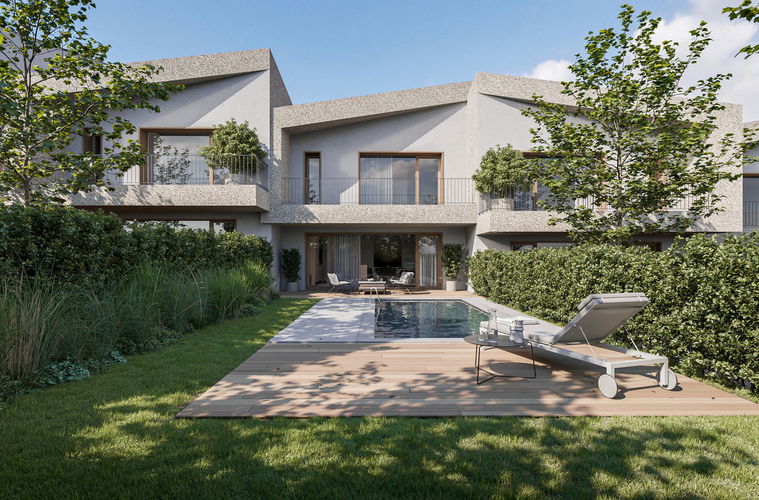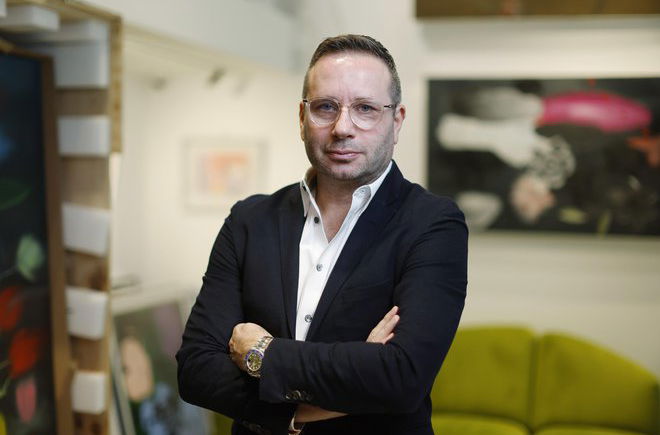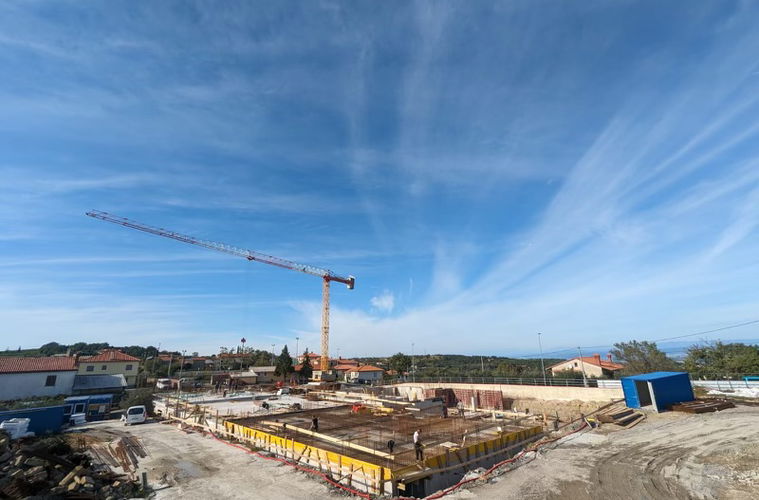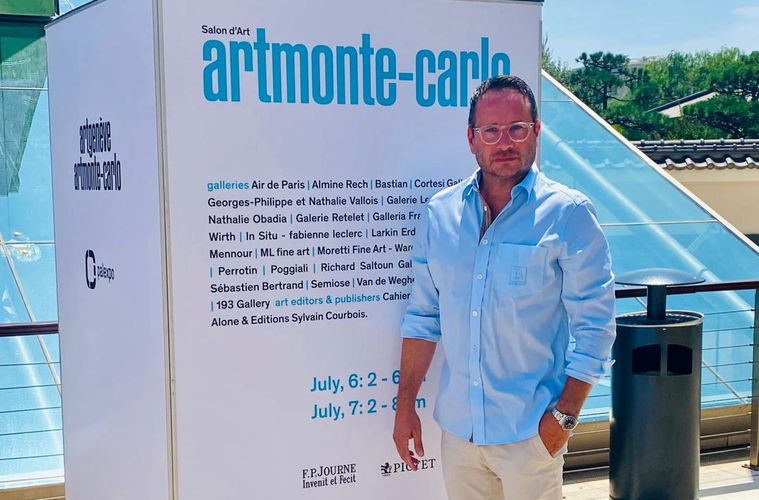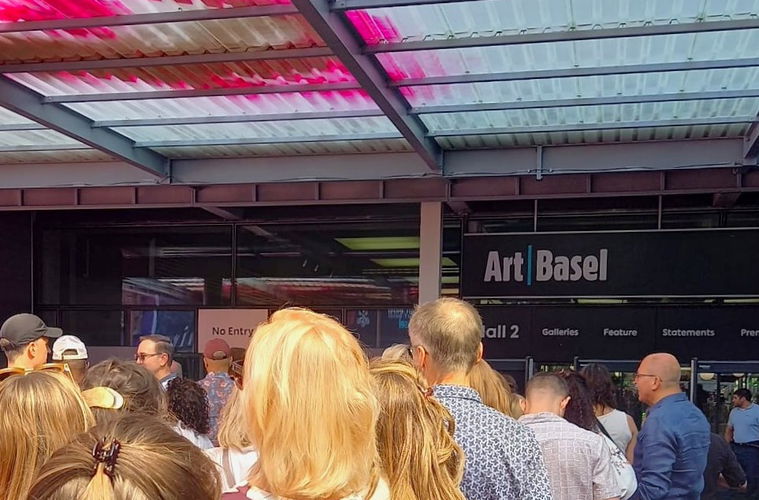AirBnB? Booking? Apartma?
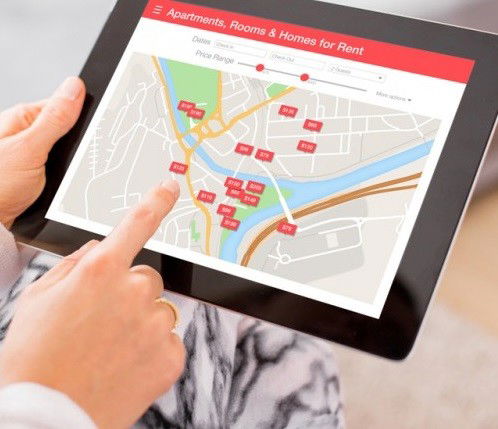
Once upon a time, on the piers, beaches, streets, and parking lots of the Adriatic, we often heard the question: "Zimmer Frei?"...
The hosts retreated to garages, sheds, and cellars, while the apartments were usually occupied by Germans or Italians. Sounds good, doesn't it?
-"Extra cash in your pocket, I'll rent out the apartment, and I'll even avoid taxes, ha!" Really?
Let's take a look at the latest manifestation of vacation accommodation rentals, also known as the sharing economy, which everyone is talking about - Airbnb and related legislation!
The Airbnb phenomenon was triggered by Joe Gebbia and Bryan Chesky. They had empty pockets and rented out their living room with inflatable mattresses to tourists. Since 2007, Airbnb has expanded to nearly 200 countries, the number of guests will exceed 200 million, and the platform's value surpassed 25 billion last year. According to some claims, it is also experiencing rapid growth in Slovenia and has tripled in two years - allegedly there were already 160,000 overnight stays this year.
Therefore, with the rapid growth of tourism, it is quite tempting for many people who have empty rooms, apartments, houses, vacation rentals, and the like.
The legislator is determined: the rental of residential units for short-term accommodation is treated as a service hospitality activity. This applies even to rentals for just one night or a few hours.
If the toilet was satisfactory, the bathroom as well, and no one searched for bacteria behind the edge of the sink when renting it informally, that is no longer enough for official rentals.
So why would you rent out your weekend house or apartment with registered activity?
Because the law requires it, and because you would pay fines if you didn't comply. And the fines are high. If Slovenia follows the example of other countries, the "illegals" will seriously reconsider. The Berlin city government introduced a fine of 100,000€ for unregistered rentals, in Barcelona, they fined Airbnb and HomeAway with 600,000€, in Iceland, they restricted rentals to 90 days, and in Airbnb's hometown San Francisco, they limited rental income to 1,000€ per day.
As Eva Štravs Podlogar, State Secretary at the Ministry of Economic Development and Technology, which includes tourism, said for Novi Podjetnik, renting through the Airbnb platform falls under the part of the legislation that regulates rentals up to 150 days.
"Firstly, I would like to emphasize that Airbnb is primarily a portal for booking accommodations, as this company is not the provider of its own accommodations. At the Ministry of Economic Development and Technology, we include private accommodation providers for tourism purposes who advertise and rent out their capacities through online portals - platforms (e.g., Airbnb, etc.) as a new reality. However, we consider it a business activity that must operate in accordance with the law. We believe that this is a complement to the tourism offer, which is particularly interesting for a certain segment of tourists. This type of offer is particularly useful in places where there is a shortage of "traditional" tourist accommodation capacities. The effects are positive for tourism, especially in terms of increasing the number of guests and their spending. The main drawback is mainly that many such providers are not properly registered, do not have registered activities, and do not register their guests, which leads to tax evasion and unfair competition. We are convinced that registering the activity of room rentals is relatively easy, while being aware of the issues regarding the consent of apartment owners in multi-apartment buildings. It is necessary to increase awareness among providers of such services and tighten control. In Slovenia, we are discussing the preparation of a horizontal regulation that would establish overarching rules for the legal operation of information platforms (established in Slovenia or abroad). With this model, we want to enable innovation and development, ensure the safety and protection of consumers, and ensure the fulfillment of all obligations of providers for legal operation in the market and the limitation of unfair competition. In July 2017, a new Regulation on minimum technical conditions and the scope of services for catering activities was published, in which we defined non-standard forms of accommodation (e.g., glamping, tree houses, beehives, wine barrels, and similar innovative forms of accommodation). In the draft Strategy for the Sustainable Growth of Slovenian Tourism 2017-2021, which is under interdepartmental review, we have also included several measures to encourage new accommodation capacities and the renovation and modernization of existing ones. Given that the 2014-2020 financial perspective does not enable the investment of non-repayable funds in the renovation and development of tourism capacities, we are trying to help small and medium-sized tourism businesses in the development of integrated tourism products. For this purpose, we have opened a public call in the amount of 8,087,984.89 EUR, which is available to small and medium-sized tourism companies. With this, we will influence the improvement of the tourism offer in Slovenia and contribute to economic growth with its multiplier effects." - Eva Štravs Podlogar, State Secretary at the Ministry of Economic Development and Technology.
For this year's summer tourist season, the Slovenian Tax Administration (FURS) announced stricter control over the rental of real estate for tourist purposes, with particular attention to the following: whether the room provider has proper registration and permits, how the room provider is registered, and whether they have timely declared the necessary tax assessment.
Improper registration constitutes undeclared work. Registration is also required for advertising through online portals (Booking, Airbnb, HomeAway, HomeToGo, etc.). However, we do not have data on what actually happened and whether any fines were imposed.
Accommodation activity is a commercial, profit-making activity and consequently involves a considerable amount of bureaucracy: minimal bookkeeping, compliance with conditions, inspections, reporting, contributions, and taxes... Are you still interested?
Zoran Đukić, the director of the real estate company Stoja Trade, believes:
"In the past two years, there has certainly been an increase in the supply of apartments and houses rented through the Airbnb portal in Slovenian cities, but short-term rentals of real estate are nothing new to the real estate market. The only difference now is that these properties are available on a single shared portal. We don't have the feeling that our owners, who rent out quality apartments for longer periods, would opt for this option. There are mainly two separate types of owners: on one hand, there are owners who rent for shorter periods and have the opportunity to monitor all tenants and the condition of their property, and on the other hand, there are owners who rent out their properties long-term because they want a serious tenant who will take care of their property and stay longer. Usually, the income from short-term rentals is higher, but short-term rentals also represent a significant burden for the owner, both in terms of time and finances. Owners who choose long-term rentals usually don't have time to be available 24/7 for new potential tenants, which is required for short-term rentals, for example, through the Airbnb portal." - Zoran Đukić, Stoja Trade
Among other things, hosts are required to register guests with the competent police administration within 12 hours, either in person (in a certified guestbook) or electronically via the eGost portal (www.policija.si/portal/eGost/eGost.php).
Who can officially rent out rooms, apartments, or vacation houses?
Only properly registered legal entities, associations, farmers, or individuals. In the case of individuals, the activity must be limited to a maximum of 150 days per year and must not have more than 15 beds. Consent from the local community is also required, as well as registration with the Agency of the Republic of Slovenia for Public Legal Records and Related Services (AJPES) (the form is available on their website: https://www.ajpes.si/Registracija/Vpis_sobodajalca/Splosno#b427).
The restrictions for farmers are similar: a maximum of 10 rooms, a maximum of 30 beds, and a maximum of 60 seats in a catering establishment.
Hosts and farmers can provide accommodation services in residential premises or on farms.
In addition to permits and registration, the host must provide minimum technical requirements for the premises, equipment, and appliances (unless the building was constructed before December 31, 1967), ensure a minimum range of services, appropriately label the property, keep records of guest registrations and check-outs, etc.
Required paperwork for renting out real estate:
The property must have a purpose defined by a valid occupancy permit.
Evidence of the possibility of conducting the activity under code 55.203 - land register excerpt or lease agreement.
Consent from 3/4 of the co-owners of apartments in a multi-apartment building that are in direct contact with that residential unit (this requirement is strict).
The building or property must comply with the provisions of the regulations (technical requirements, minimum range of services) and provide general conditions (safety of electrical and other installations, etc.).
The property intended for rental or accommodation must be appropriately categorized. Registrations are made at: http://kategorizacija.slovenia.info/ [email protected], and more information and explanations are available at: http://www.mgrt.gov.si/si/delovna_podrocja/turizem/kategorizacija_nastanitvenih_obratov/. If you want to determine how many stars or apples you can display on the facade or website, you can perform a self-assessment there, but only from 1 to 3 stars, while a professional expert assesses 4 and 5 stars (register: http://kategorizacija.slovenia.info/doc/Register_ocenjevalcev_nov_2015.pdf). Unfortunately, the categories differ across Europe, but for communication with foreigners, you can use a link that compares systems, available on the aforementioned website.
A new system of categorizing accommodation facilities is being prepared, and Aljaž Žumer, a representative for public relations at the Ministry of Economic Development and Technology, says the following:
"At the Ministry of Economic Development and Technology, we are preparing a comprehensive overhaul of the system for categorizing accommodation facilities, in which we will introduce the Hotelstars system for hotels and update the criteria for other accommodation facilities. The system will be implemented at the end of this year when we publish the new Regulation on the Categorization of Accommodation Facilities. We believe that by introducing internationally comparable criteria, we will contribute to raising the recognition and reputation of Slovenian hotels while modernizing the criteria for other accommodation facilities. Hotelstars represents uniform criteria for categorizing hotels in 15 European countries, and it provides guests with information about the guaranteed quality they can expect. The precondition for the introduction of Hotelstars criteria was the signing of a contract with Hotelstars, which the ministry signed in April of this year in Tallinn." - Aljaž Žumer, spokesperson for public relations at the Ministry of Economic Development and Technology.
Taxes on rental of real estate.
The state also needs to receive something from tourism and overnight stays. How much?
Room providers (individuals and sole proprietors) are subject to income tax from business activities, either based on actual income and expenses or based on actual income and standard deductions.
In the first case, the income is added to other income.
In the second case, as standard taxpayers, we operate according to the formula: 20% of total income is taxed at 20%.
Regardless of the above options, the room provider pays advance income tax. In the first year of operation, the turnover/income is estimated by the individual, and the Tax Administration determines the advance tax payments. If the amount of income tax exceeds 400€, the advance tax payments are monthly; otherwise, they are quarterly.
The income tax itself is the same whether we operate the activity as an individual or as a sole proprietor.
If you conduct business with foreign countries – such as Booking, Airbnb, or similar platforms – you must self-register as a value-added tax (VAT) payer or obtain a Slovenian VAT number before starting operations.
A room provider becomes a VAT taxpayer only when the total income in the last 12 months exceeds 50,000€. The VAT rate is 9.5%.
When calculating income within platforms like Airbnb (according to current, unharmonized legislation), the room provider must consider the total service fee for the end customer, not the income reduced by the platform's commission... The portal's commission costs are accounted for the following month when the provider receives an invoice from the platform.
Legal framework:
In Slovenia, the rental of accommodation capacities is regulated by 19 laws, regulations, and bylaws, among which the most important ones are:
Hospitality Industry Act (ZGos)
Regulation on minimum technical conditions and the scope of services for catering activities
Regulation on the registration of room providers in the Business Register of Slovenia
Companies Act (ZGD-1)
Lastly,
During the preparation of this article, which took longer due to gathering opinions, the government adopted the Tourism Development Strategy 2017-2021 on October 5, 2017. Minister Zdravko Počivalšek stated that 40 external experts were involved in its development.
The optimistic expectations are a result of the current economic situation and include approximately the same growth rates as in recent years. However, it is surprising that the export of travel is forecasted to grow by 9% when the strategy is named the Green Scheme of Slovenian Tourism.
Regarding the topic of our article, perhaps the most relevant information is that the strategy plans for around 20,000 new tourism rooms, one-third of which will be hotels, while we hope that there will also be support from state funds for others.

